|
Statistics About Heart Disease -
You Don't Need to Be One of Them
Introduction
Statistics About Heart Disease indicate that this is a very big problem in western society. In fact, many regard it as the most serious health problem.
Dr. Caldwell Esselstyn explains why and what changes can be made to greatly reduce a person's risk of heart disease.
This is part 2 of an account of Dr. Caldwell Esselstyn's remarks during an interview with Radio New Zealand in November, 2010.
Part 1, the Bill Clinton Diet
looked at the recommendations that former U.S. president Bill Clinton followed to improve his heart health. Let's go now to the article and learn more of statistics about heart disease and how you can benefit from Dr. Esselstyn's knowledge.
Statistics About Heart Disease
Dr. Caldwell Esselstyn on Heart Disease (Part 2)
We now know that the following foods, when immediately consumed, injure our endothelial cells: the processed oils - olive oil, corn oil, soybean oil, safflower oil, sunflower oil, palm oil; dairy products - yes, milk, cream, butter, cheese, ice cream, yogurt; and anything with a mother, anything with a face - meat, fish and chicken. Low-fat products, of these food items, still injure the endothelium.
We thought until about 1980 that the endothelial cell was just a cute little sort of red brick, lining the wonderful pipes of our blood vessels, but by 1988 we understood that the endothelial cells were manufacturing this magical product, nitric oxide.
It was pretty hard to do research and to wonder why all these years that these common chronic illnesses that we have and that we sort of blindly accept as a process of aging really need never occur. We suddenly have now begun to evolve a basis of scientific understanding. Right now the data is absolutely so overwhelming of the injury that is received to the endothelium from dairy that it is irrefutable.
Concerning vitamin B12: There are some populations where they do not take any B12 supplements, and they are not necessarily deficient, but it is because their hygiene is somewhat compromised. We ourselves actually make some B12, but 1 think rather than a compromise on our hygienic efforts perhaps it is better to take B12. B12 is made by microorganisms in the soil. If you do get it from animals out of their meat, how do they get it into their meat? By grazing. It is very interesting. It is not really a problem to take the B12 supplement, and it does not imply that a diet is inadequate. Rather than taking a form of food that is documented to cause injury, it is much better, perhaps, to take the vitamin, if you are not getting it from a toxic source. I also take vitamin D3 1000 IU daily and about 1000 mcg of B12 a day.
There is a very strong message in the research that we have done. For instance, in 1985 when we started, the idea was to see if we couldn't take patients who were really quite ill with coronary artery disease and help them. They had either had their first or second bypass that had failed; they had their first or second angioplasty or stent that had failed. Five were told that they wouldn't live out the year. Well, all those five made it beyond twenty years, and all the others who were fully compliant had no further progression of their illness. If you look at some of the photographs in the book, you will see some striking angiograms, x-rays of their blood vessels to the heart, which will show that we were successful not only in halting their disease, but also occasionally there would be rather striking evidence of regression of the disease. You are able to restore the capacity of the endothelial cells to once again make higher and higher levels of nitric oxide, which, as we reported earlier, are so protective to the individual.
Moderation in all things is a little bit like saying, "I think I'll just have a few cigarettes. Maybe I'll have a small lung cancer. I'll have a little bit of cocaine." It doesn't take too long to go back and see where doctors were advertising using cigarettes, using themselves as examples. What usually happens to societies in these situations is that there first has to be a general, overall agreement on the science. Look how long it took us, even after it was absolutely apparent, to agree how harmful cigarette smoking is; how long it took to finally get a Surgeon General's statement about it in 1964. That just took forever.
What I am simply saying is that our research has shown that patients who were absolutely at death's door with heart disease could turn this around and really live the rest of their lives without having further progression of their disease. I do not think that is radical. Earlier in our conversation, I made it very clear that we need to look at the autopsy studies of our GIs in Korea and Vietnam and, more recently, those between the ages of 17 and 34 who died of accidents, homicides, and suicides. The disease is now ubiquitous. I am not of the school that we ought to play brinksmanship with this disease once we absolutely know what the harmful products are.
The thing that makes this so powerful is when I start with somebody who, let's say, weighs 120 kilos and has had a heart attack, either he or she-they get what I am saying. Now at the time that I see them, they also have diabetes, hypertension, obesity, and they are at risk for stroke, as well as already having had a heart attack. But they get it, and now a year later they weigh considerably less. Their obesity is gone. Their diabetes is gone. Their high blood pressure is gone, and interestingly enough, their likelihood of getting the common western cancers of breast, prostate, and colon is markedly diminished. Their likelihood of getting gallstones is gone. Their diverticulitis is gone, and some of these common autoimmune diseases-rheumatoid arthritis, MS, lupus-are gone.
The thing that makes me so passionate about this, quite frankly, is when we look at what really has to happen today. We need really to make a seismic revolution in health, and a seismic revolution in health is never, ever going to come from an invention of another pill. It is not going to come from the invention of another drug, of another procedure, or of another operation, but the seismic revolution in health is literally at our fingertips, if we are able to have the grit and the determination to really make the kind of lifestyle changes to help this mortal frame endure optimally for the time that we are given on earth.
My dad was an absolute fossil of the ravages of western nutrition - heart attack at 43, diabetes in his 60s, and then died of metastatic prostate cancer. All caused by lifestyle. Rather than say I am asking for something extreme, say I am asking for something significant. I am asking for you to eat a body of food that absolutely has tremendous variety and is delicious and will enhance your health and for you to give up a pile of delicious food that understandably is well-documented now to injure your health.
Let's talk about extreme. In the United States we do 1.2 million stents a year. What is the mortality when you do a stent? Not much-1%. What is 1% of 1.2 million? 12,000. So 12,000 people die in the States getting their stents. Another 500,000 have a coronary bypass operation. The mortality is a little higher-3%. So now there are 15,000 who will die getting their coronary artery bypass. At the time that you get a stent, you also have a small likelihood of having a heart attack-4%. Four percent of 1.2 million is 48,000 heart attacks and 12,000 deaths. There is also a risk of stroke when you have the bypass-6%. Six percent of 500,000 is 30,000 strokes. We now have a diet in the United States that requires that we have 27,000 deaths, 48,000 new heart attacks, and 30,000 new strokes. To me, that is a pretty extreme burden to carry, and the real risk of all this is right now our nation is being pulled into the debtor's prison faster than you can imagine. The thing that is doing it more quickly than anything is Medicare, and what is 45% of the cost of Medicare? Cardiology.
Changes that are this significant move with some degree of caution. Where do you think physicians who develop coronary artery disease go? They are coming to me. My big criticism at the present time with the medical profession is, quite frankly, as follows: The data are clear; the proof of the concept that we can halt this disease has been demonstrated.
Concerning omega 3s, I do not say no to them. In fact, in the course of the counseling seminar that I have for my patients with heart disease, we spend a significant amount of time talking about omega 3, but our omega 3s are largely received through taking a tablespoon of flax seed meal plus, and here is the place you really get the wonderful omega 3s, the green leafy vegetables, such as bok choy, Swiss chard, kale, collards, beet greens, mustard greens, turnip greens, napa cabbage, Brussels sprouts, broccoli, cauliflower, cilantro, parsley, spinach, romaine, arugula, and asparagus. When you eat fish and fish oil, you often do not know if you are getting mercury and other contaminants, plus there is recent evidence out of Harvard showing those who are taking the fish and fish oil have a greater tendency to become diabetic. So it seems to me to be much safer to get the omega 3 through the green leafy vegetables.
When patients find us, either through the Internet, through reading my book, which is called Prevent and Reverse Heart Disease, or because they have read The China Study by Colin Campbell, who devoted a chapter or two to what we do; they have already had a shot across the bowel, to speak. They, perhaps, have had a heart attack; they have had a stent or a bypass; and they are suddenly very, very open to some significant changes. Right now we are in the process of looking up another 240 patients whom we have treated. It is so exciting and heartwarming to think that these patients now fully recognize that they themselves have become the locus of control, not the cardiologist, not the cardiac surgeon, not the pills they are taking, but they themselves have become the locus of control to absolutely annihilate this disease that was destroying them.
It is important to exercise, but food trumps it all. I like my patients to walk and exercise, but I never want them to have the feeling that they can work out and somehow run down their cholesterol levels and avoid any calamity if they are strenuously exercising. That's doesn't compute.
How many failures have we had if the patients are fully compliant? In over the last twenty-six years. I can say honestly that there has been one, just recently, and I was so puzzled by this that I actually went to the person's house to look at the refrigerator and check the cabinets, and I think we can tighten it up a little better, but I was a little bit disappointed. I am going to say that that was a failure on my part. (The person is living and doing well.)
As far as what our patients die from, we have had some patients die of pulmonary fibrosis. Some patients have succumbed to amyloid disease, but they are both very, very infrequent and rare. Interestingly enough, we have not had any patient in our original small group of twenty-four, for over twenty years, with cancer. The diet that we are suggesting, from all the cancer work that has been done on research and cancer, certainly supports the identical type of diet because it appears that somehow animal protein is a very, very strong promoter for cancer.
If you were to autopsy and look at the prostate glands of one hundred Japanese men at age 50 and one hundred US men at age 50, you would find that 50% already had a very, very small noninvasive cancer of the prostate gland. These are people who have died of auto accidents and the like. The interesting thing is what happens over the next ten to twenty years. There will be much more of a significant number of US men who will now develop invasive prostate cancer; whereas, with the Japanese in Japan it will remain as an early, indolent, in situ, noninvasive type right up into their 80s and 90s. The implication is that it is the animal protein which serves as the promoter of this illness of a more aggressive type.
Concerning food, beans and rice are a real backbone. They are terrific. You put the cooked beans on top of the cooked rice and on top of the beans you have a whole panoply of cut-up vegetables - tomatoes, corn, peas, peppers, water chestnuts, scallions, sprinkled lightly with low-sodium tamari or salsa, and it is just an absolute treasure. Another thing we have come to enjoy are some wonderful pizza crusts made with whole grains for a cheeseless pizza. You just pour on every imaginable vegetable, and it is just delicious. There are different types of preparations you can do with stir-fry in a wok and then put on a grain, whether it is couscous, quinoa, wheat berries, rye berries, barley, and the like. My beloved wife, Ann, did all the 150 recipes in the book, and it has made it very easy for patients. Like a puppy in the deep grass when they first start this, they can suddenly get their feet solidly under them and know how to move forward. My family is on a plant-based diet. Our children are grown; we have eight grandchildren, and all the family and the grandchildren eat this way.
Some people are worried about where they are going to get their protein. Along with my good friend and colleague, Colin Campbell, who wrote The China Study and one of America's premier nutritionists, clearly it is impossible to be protein deficient when you are eating a variety of the plant-based foods - all the whole grains for your cereal and breads, plus one hundred one different types of legumes, all the different, red, yellow, and green leafy vegetables and fruits. Body builders and champion athletes eat plant-based all the time.
I grew up on a beef and dairy farm. It has been twenty-six years that I have been eating this way. and I feel that it has helped considerably. When my father had his first heart attack at age 43, it put me in a pretty strong risk situation by having a first-degree relative under the age of fifty who had had a heart attack, and I feel that I have been able to construct a lifestyle that has saved me from a similar fate. I went to our Department of Cardiology, and I had a stress echo. That is a test which really will detect any weakness in your cardiac situation, and it consists of the following: They have a cot where you lie and you have a ultrasound probe that is placed over your heart in multiple different positions. Immediately next to the cot, they have the stress gadget that you walk on - a treadmill. You also are set up to an electrocardiogram. So at the time you are walking on this treadmill, the goal is to take you to your maximum pulse that you can possibly get and stress you out as much as they can under the very safe conditions. (I went all the way to the top and beyond for my age group.) They immediately lay you down again with the ultrasound probe, and now they measure your heart beat when it is going maximally, to see if there are any deficits. I am happy to say that this plant-based diet has made it so that at the present time there are no deficiencies in my heart when it is fully stressed out.
There is a reason I am so passionate now. When I started surgery I never thought when I retired from surgery that I would be continuing in medicine, but I must say that when my research began to sprout wings, it was pretty impossible to give up because I feel that we are at the cusp of what could really be a seismic revolution in health. I think one of the things that is really going to propel that forward is knowledge that is evidence-based research. We are about to report our last 250 patients, which I think will make a much more significant number. There are those who have decried the fact that our numbers were small originally when we demonstrated and proved that the concept was correct. Now that the numbers are larger, it is going to be very difficult to refute.
So there is a very interesting perspective regarding statistics about heart disease. You probably found ideas there about things you could do to help ensure that you are not one of those statistics.
|
Keep up to date with
valuable insights into
pain management via
a healthy lifestyle.
Receive the monthly
Natural Pain Relief
Guide Newsletter.
News articles, health
tips, specials, freebies.
Enter your email and name
in the form to the right.
|
|
|
Check this out!
FREE BOOK
- help for your back, neck or sciatic pain.
NEWLY REVISED!
Great Special
Get it Now!
Finally - Get A Good Night's Sleep
|
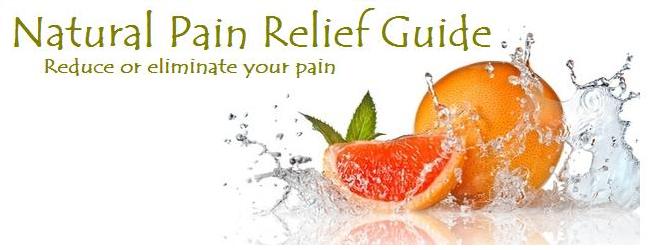

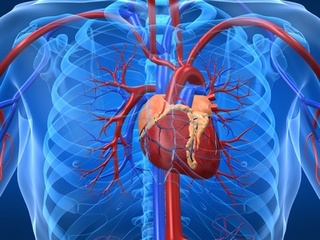
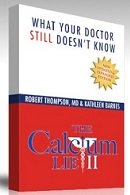
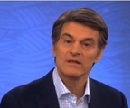
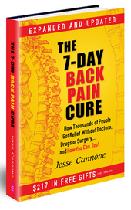



New! Comments
Have your say about what you just read! Leave me a comment in the box below.